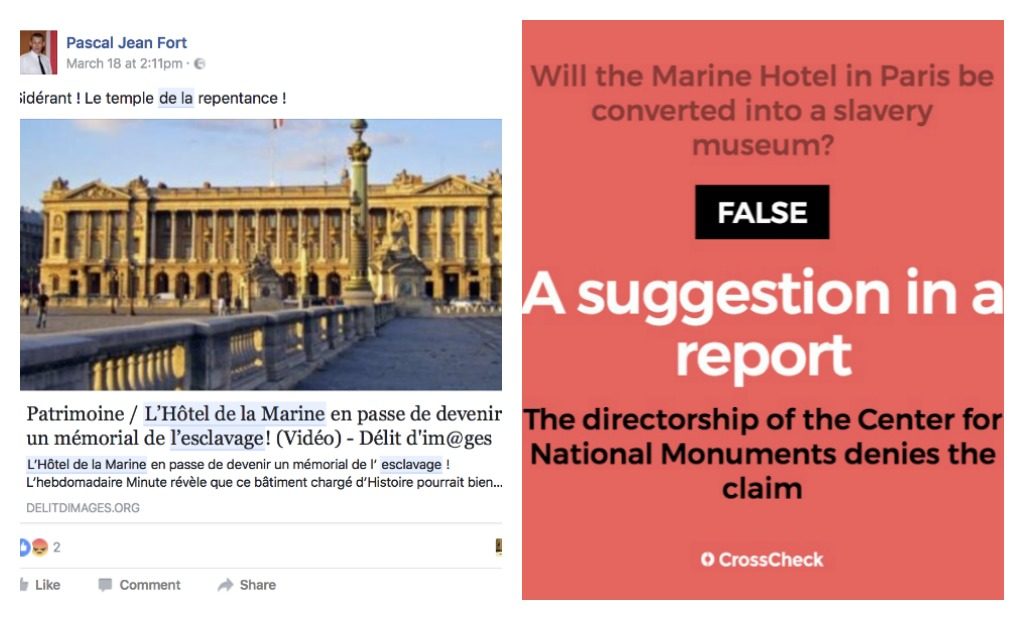Several websites, among which Riposte Laïque, state that the Marine Hotel in Paris is about to be “promoted to a slavery museum”. They base their statement on an article published by the extreme right-wing weekly Minute. Yet, this article was contested by the director of the Center for National Monuments.

The rumor originates from a report on the remembrance of slavery that was given to the Minister of the Interior in March 2017. Its authors advocate the creation of a memorial site in Paris on slavery and its abolition. They suggest several locations, the Marine Hotel on Concorde square being the first one on the list. This building is the ex-ministry of the Navy and Colonies and “hosts the office where Victor Schoelcher signed the decree for the abolition of slavery” in 1848. The building ceased to be the headquarters of the Navy in 2015 and it is now under reconversion.
 Extract of the report proposing the set-up of the foundation in remembrance of slavery at the Marine Hotel.
Extract of the report proposing the set-up of the foundation in remembrance of slavery at the Marine Hotel.
The report’s authors propose that the foundation in remembrance of slavery be set-up at the Marine Hotel, but they recognize that “there needs to be an institution, a scientifically-oriented museum, that is distinct from the site”. Hence, Minute, as did Riposte Laïque, used simple proposals to support their claims.
Questioned by CrossCheck on the possible conversion of the Marine Hotel into a slavery museum, the direction of the Center for National Monuments categorically denied the claim: “The answer is no.” Its future use will be unveiled “very soon”, they added.
A collective of historians had already asked for the conversion of the Marine Hotel into a slavery museum in 2011 – before the publication of the report – in order to safeguard a “site of national and colonial memory”.

 Misleading
Misleading


